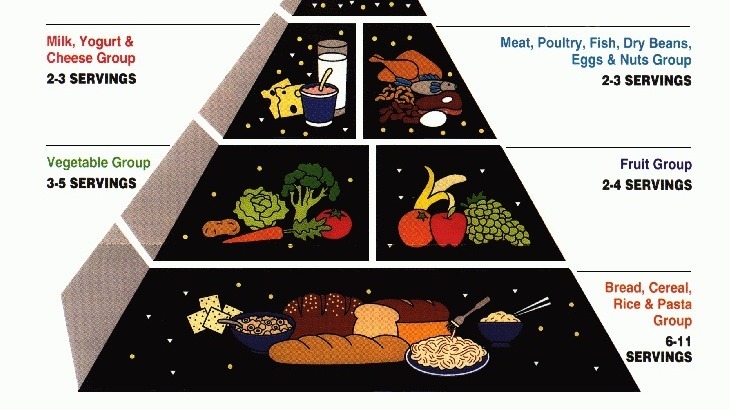Summary
Do you know someone that is overweight or has Type 2 Diabetes that would like to reverse their condition? Also, is it important to them to reduce the risk of cancer and degenerative diseases such as Alzheimer’s and dementia?
If so, continue reading.
Fast Access
- See Videos
- Research Information – Books and Articles
- What you need to start
- Continue reading to learn about my journey
Here is my journey and what I found out.
My health was going in the wrong direction, using evidence as my guide my blood markers were going in the wrong direction. I was gaining weight, inflammation was rising, and pain in my joints was increasing reducing my ability to play tennis, ski, and move around.
My doctor was telling me that I needed to go on statins to reduce my cholesterol. While I knew I would not take medicine, since they only treat the symptoms while having many adverse side effects, it was clear that I could not avoid the evidence of my deteriorating health.
So what could I do, I have delayed taking action for some time but time was running out.
On my birthday, in early June of 2017, my son Alex, gave me a ketogenic cookbook. So I began researching the “ketogenic lifestyle” and the facts associated with many of our top health conditions. Here are 10 of the key facts that I discovered.
-
- Type 2 diabetes is reversible by reducing glucose intake. (My father had type 2 diabetes for the last 35 years of his life, but reversing it was never discussed.)
- Taking insulin for Type 2 diabetes masks the problem, it does nothing to address the cause, and therefore over time, the condition gets worse.
- Type 2 diabetes, cancer, and cognitive conditions such as dementia, Alzheimer’s and Parkinson disease are being understood, based on new testing, to be metabolic diseases related to over intake of carbohydrates producing excess glucose.
- Alzheimer’s is also called Type 3 diabetes.
- Our cells can use 2 different sources to generate energy:
- carbohydrates producing glucose
- fats producing ketones. (cancer cannot use ketones, therefore with low amounts of glucose cancer cells will not have the energy needed for growth)
- Carbohydrates from processed food are not an essential macronutrient.
- Why is eating healthy fats considered bad? Ancel Keys who was the driver behind low fat, high carb diets used correlation data rather than direct testing to come to his conclusions, and when this information is further reviewed, he excluded data that did not correlate to his conclusion. But in the 1950’s when this took place, and heart disease was on the rise, the desire for a solution overrode the amount of effort that would be required at that time to prove the conclusion through scientific means. Ancel Keys went on to be on the nutrition committee of the American Heart Association where the nutrition guidelines for limiting saturated fats and using a high amount of carbohydrates in our diet was created.
- Most cancers originate due to a breakdown in the cells metabolic process and cancer cells consistently need massive amounts of glucose for cancer’s ongoing growth. By shifting to a low carbohydrate, high-fat diet, it makes cancer growth difficult or impossible at the early stages.
- New information shows that degenerative diseases are also related to large amounts of glucose consumption and shifting to a ketone-based diet could also reduce risk and impact of these diseases.
- The ketogenic diet has treated children with seizures successfully since the 1920’s. This way of eating is not new.
I have spent many years taking care of my father and his sister, and through that time I was in many homes for the elderly seeing room after room of people with debilitating conditions, with dementia and Alzheimer’s being one of the toughest on family and friends. It was also the most challenging thing for me to witness.
Understanding the above, I made the decision that I was willing to try the ketogenic diet to prevent having dementia or Alzheimer’s while at the same time addressing losing weight, reducing my blood health markers, and reducing the risk of diabetes.
Here is my personal experience.
I have implemented the ketogenic lifestyle (ketogenic diet) at the end of June 2017. Based on my blood test drawn in October 2017 the following is what I have achieved:
- Lost 16 pounds
- No longer binge eat and only eat when I am hungry. I can walk past a chocolate chip cookie without taking one or two.
- Triglycerides have been reduced by 106 points
- Cholesterol has been reduced by 94 points
- Joint inflammation is gone
- SGPT, an indicator of liver stress, has been reduced 29 points and my liver is no longer under stress. Given the importance of the liver, this result I feel is one of the most important for healthy longevity.
I have found a lot of information and have spent a lot of time going through the data. I have consolidated the information to allow you to determine if you want to take it further.
What you should know and what you can do.
America’s Obesity Epidemic reached a record high reported by Centers for Disease Control and Prevention stating that 40% of American adults and nearly 20% of adolescents are obese, the highest rate ever recorded. What we are doing collectively is not working.
The American Diabetes Association states that diabetes is a chronic progressive disease.
Yet there are doctors that are reversing diabetes and obesity with nutrition based diets (low carb, high fat (LCHF) diet with one LCHF diet called a ketogenic diet).
Videos: Understanding Type 2 Diabetes and Obesity and how to reverse these trends individually:
Dr. Jason Fung and Dr. Andreas Eenfeldt videos explain how to reverse diabetes in this 12-minute video. The Perfect Treatment for Diabetes and Weight Loss
Dr. Sara Hallberg explains on a Ted Talk about the ability to reverse Type 2 Diabetes and why, but to do so you need to not comply with the standard guidelines as they are based on outdated information. Reversing Type 2 Diabetes starts with ignoring the guidelines – 18 Minutes
Dr. Westman, the head of Diabetes and Medical Weight Loss Clinic explains in this video the science behind the low carb Ketogenic Diet. Ketogenic Diet for Obesity and Diabetes.
Here are some of the testimonials from his clinic: Success Stories
What do you need to do to start:
The recommendation is to implement a low carb, high fat (LCHF) diet. I implemented a Ketogenic diet which is a specific LCHF diet. You make your choice based on reviewing this material and your own research.
- It is important to get clear on what specifically you want to accomplish and why.
- If you are diabetic you need to understand that the objective of the ketogenic diet or LCHF diet is to significantly reduce your glucose levels allowing them to come back under control, so you should discuss this with your medical professional to understand how to manage a reduction in your glucose level and how to monitor it through the process.
- I recommend using the Dietdoctor.com as a resource for the following:
- Review the 18 tips on how to lose weight in the bottom section of this page
- For recipes
- Information in general
- Based on reviewing the 18 tips, I would recommend begin eating based on the information provided in the 18 tips using the food you like that is within the diet. Eliminating all carbs and processed foods. Note you will eat carbs that are associated with vegetable and other items that are recommended, the goal is to bring down your carbs to less than 75 grams a day, or better yet 50 grams per day or less.
- Note, it is not about being hungry, see tip 2. There is plenty to eat, it just different.
- Note you may feel cravings at first, but in a few days, that will change as your hormones related to hunger and being full adjust.
- Here is a reference book: The Ketogenic Bible: The Authoritative Guide to Ketosis – 2017
- Menu ideas. You can review different LCHF recipes on the Diet Doctor. I recommend trying one out, look at the ingredients and try one. We (my family) have loved many of them, finding them very delicious and healthy.
- Video: Dr. Eric Westman talks to his clinic members on how to start the ketogenic diet, what to expect, and how to minimize the impact of the transition.
Note: This is just information. You must make your own decision and be responsible for the action that you decide to take.
Additional Resources:
- Ketone / Glucose meter: This is a more accurate method for understanding your level of ketosis and the impact of what you eat and exercise on your levels of ketones and glucose. There are multiple meters, I use the Keto-mojo meter because the test strips (ketones and glucose) are cheaper.
- Cookbook: The Ketogenic Cookbook: Nutritious Low-Carb, High-Fat Paleo Meals to Heal Your Body by Jimmy Moore and Maria Emmerich
- Book: The Ketogenic Bible: The Authoritative Guide to Ketosis – By Dr. Jacob Wilson & Ryan Lowery, PhD – 2017
- Video: Global Food Revolution – 39 minutes – July 2016- Dr. Andreas Eenfeldt
Alzheimer’s
- Book: The End of Alzheimer’s: The first book to prevent and reverse cognitive decline. By Dr. Dale Bredesen – August 2017
- Book: Genius Foods: Become Smarter, Happier, and More Productive While Protecting Your Brain for Life By Max Lugavere and Paul Grewal
Cancer:
- Ted Talk: Starving cancer away – Sophia Lunt – April 2016 – 11 minutes
- Video: Understanding Sugar’s Role in Cancer and Your Cells! – Dr. Charles Majors – 4:13 minutes – January 2016
- Book: Tripping over the Truth: How the Metabolic Theory of Cancer Is Overturning One of Medicine’s Most Entrenched Paradigms – Travis Christofferson
- Book: Fat for fuel by A Revolutionary Diet to Combat Cancer, Boost Brain Power, and Increase Your Energy – by Dr. Mercola – 2017

